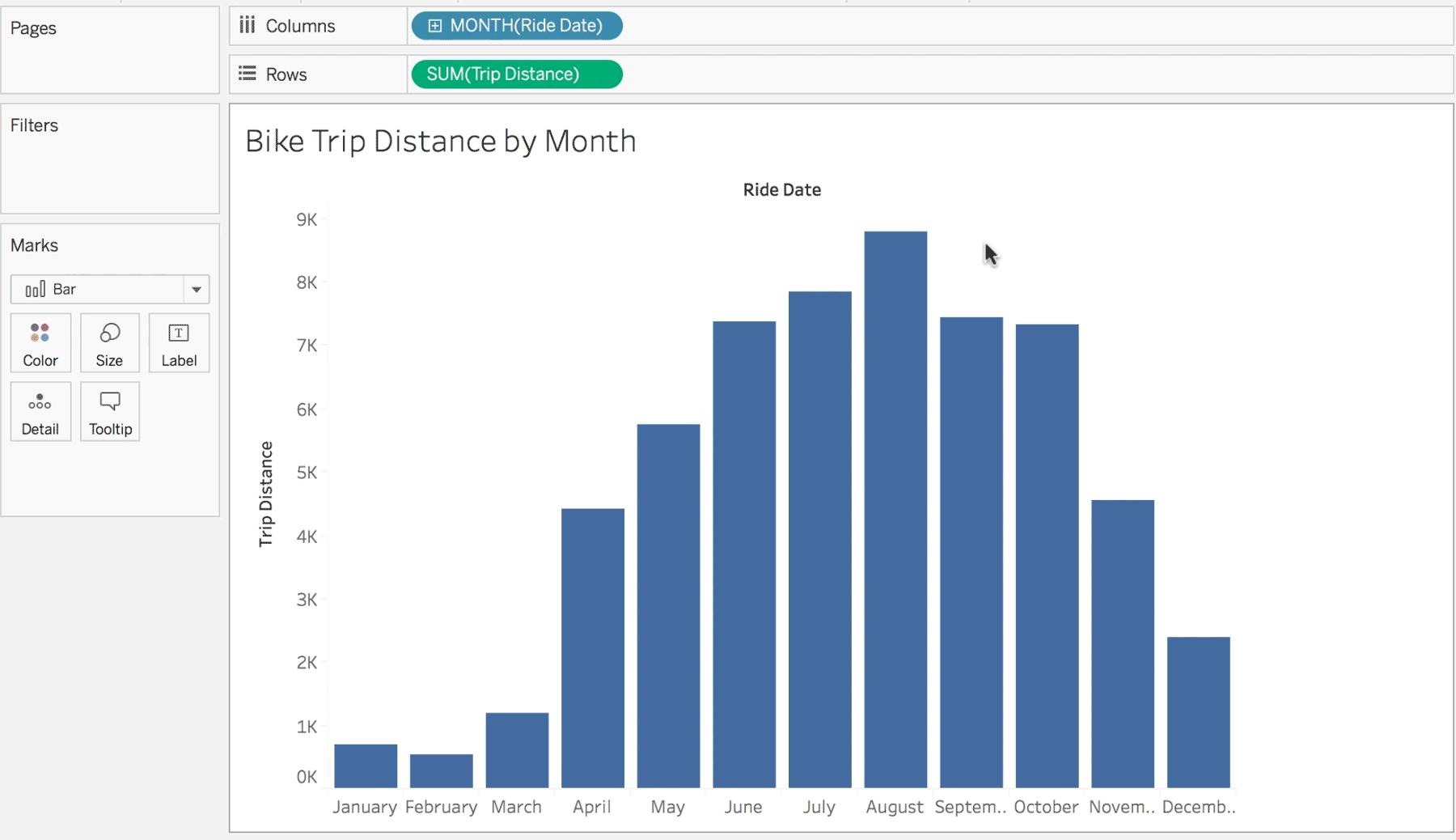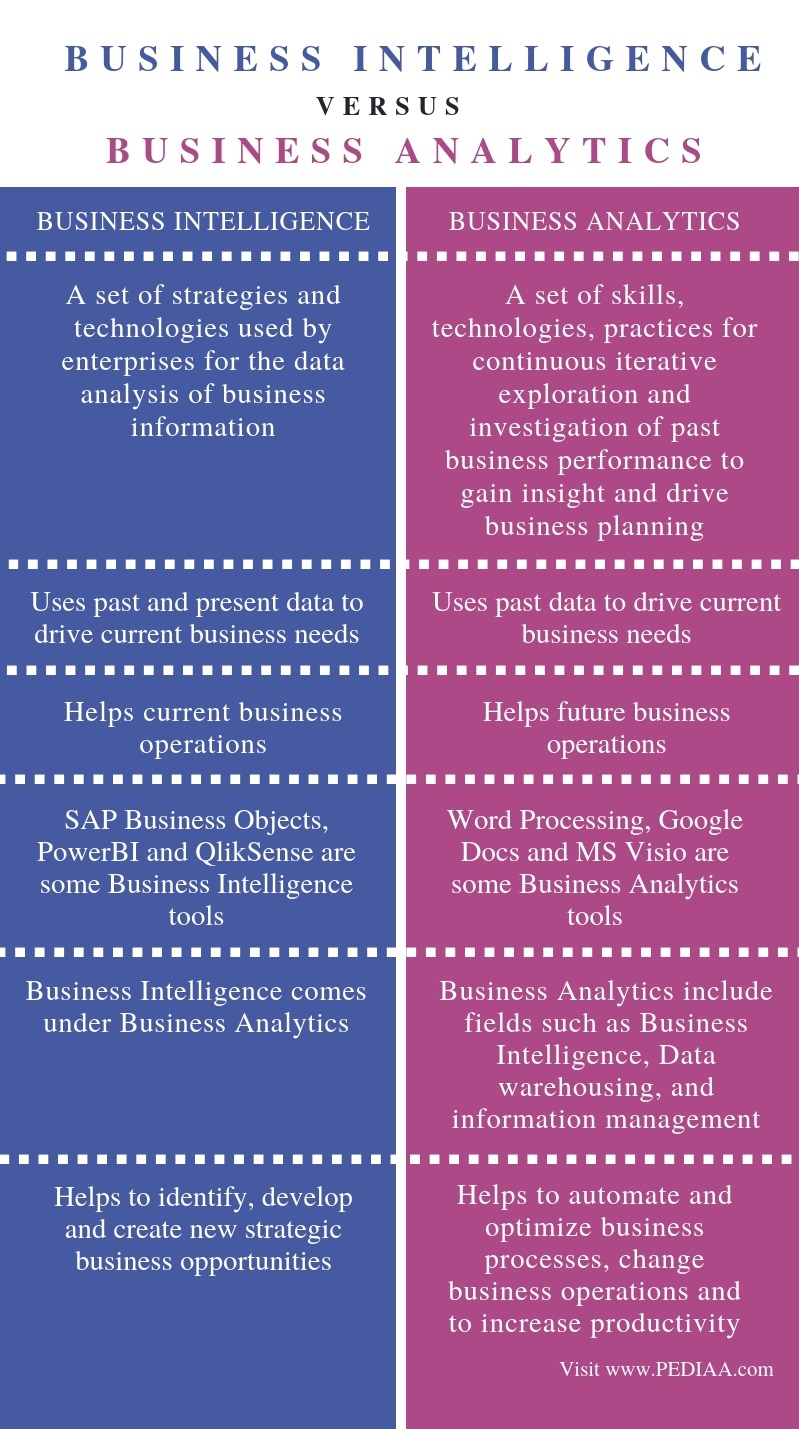

Performance Enhancementīusiness analytics provides insights into what’s working for your business and what isn’t so you can do something about it. Here are some of the benefits that business analytics brings together with sample real-life scenarios. You could use it for automating reports, making smarter business decisions, improving your service, etc. The things that can be done with the information at hand branches in many ways. The primary function of business analytics is to obtain relevant insights in a timely and organized manner. Importance and examples of business analytics application Data analytics doesn’t refer to which is better but rather, which is used for what. They, however, work side by side most of the time. Each has its own objective, process, skill requirement, and function. While experts refer to them interchangeably in some occasions, they are still a field of their own. Business analytics is a subclass of computer science while data analytics is a superset of data science.Īs shown above, business analytics and data analytics have key differences.Data analytics, however, directs more effort in fiddling with data to find correlations and patterns. Business analytics covers the production of reports, data trends, and the Key Performance Indicator (KPI) matrix.Business analytics is the phase for decision making while data analytics is the procedure for asking questions.In contrast, data analytics shows theoretical probabilities. Business analytics presents the data as the one and only version of the truth.
Analytics and business intelligence definition software#
Business analytics requires understanding in statistical analysis software while data analytics requires comprehension in statistical methods.On the other hand, data analytics is more concerned with the aspect of processing data and drawing conclusions from them. Business analytics focuses more on communicating the results and implementing changes.Business analytics is more process-oriented while data analytics is more technical-centered.Moreover, most data analytics software is also business intelligence software. They also aim to solve a wide range of business-related problems. Both fields apply data and technology in order to improve business efficiency. What is the difference between data analytics and business analytics?īusiness analytics and data analytics overlap in a lot of ways making them closely related, but not the same. Together, they provide organizations with a holistic view of all data in order to make the best business decisions.

However, all experts agree that the two are highly connected and their process for providing businesses with insights is entwined.

In fact, business intelligence solutions are usually the systems used for both BI and business analytics needs. Many experts aren’t clear on where to draw the line that separates business analytics and business intelligence. They consider data as part of their asset which they actively mine for ways to turn into a tangible edge. This makes it popular among companies that are dedicated to making strongly data-driven choices. However, business analytics’ most common use is to generate insights that help in making a smarter business decision. It also provides information that organizations can use to deal with present issues and future similar problems. For instance, it’s helpful in determining the weakness that your current processes possess. You can use business analytics to highlight significant data that has a plethora of use cases. It’s useful in evaluating both the specific aspects of the business and the entire company itself. It’s comprised of quantitative methods that are applicable to particular products, processes, or projects.

What is business analytics and its types?īusiness analytics refers to the techniques and methods that companies use in order to measure their business performance. Against all odds, however, companies are looking to utilize business analytics to help steer them in a more successful direction. This includes the lack of experts to handle data and the potentially big changes it could bring to the organization. They would then use the information obtained to give themselves an edge against the competition.Īs expected in any field, there are some challenges in business analytics as well. They’re also looking to automate various processes through business analytics and pick out significant insights. More organizations are taking interest in mining their data in order to use them as a basis for their decisions.


 0 kommentar(er)
0 kommentar(er)
